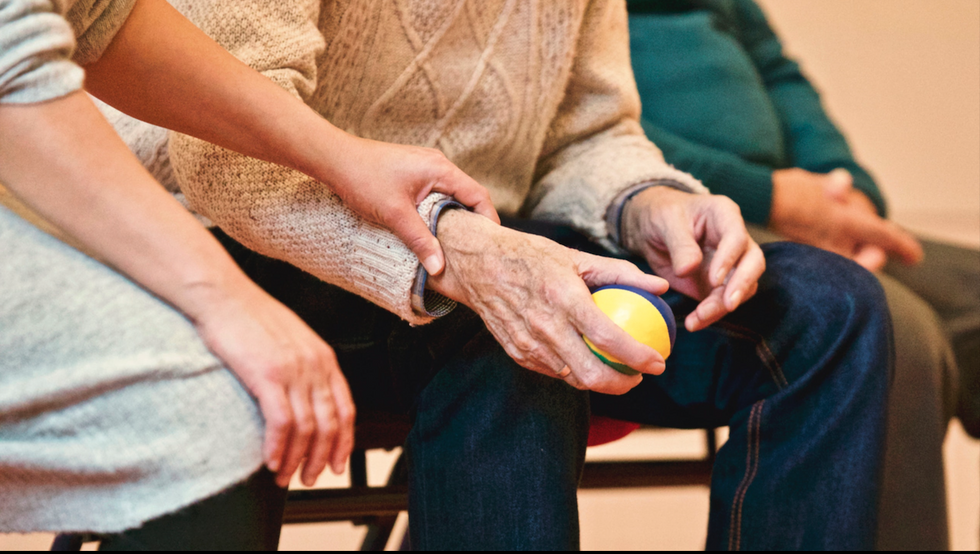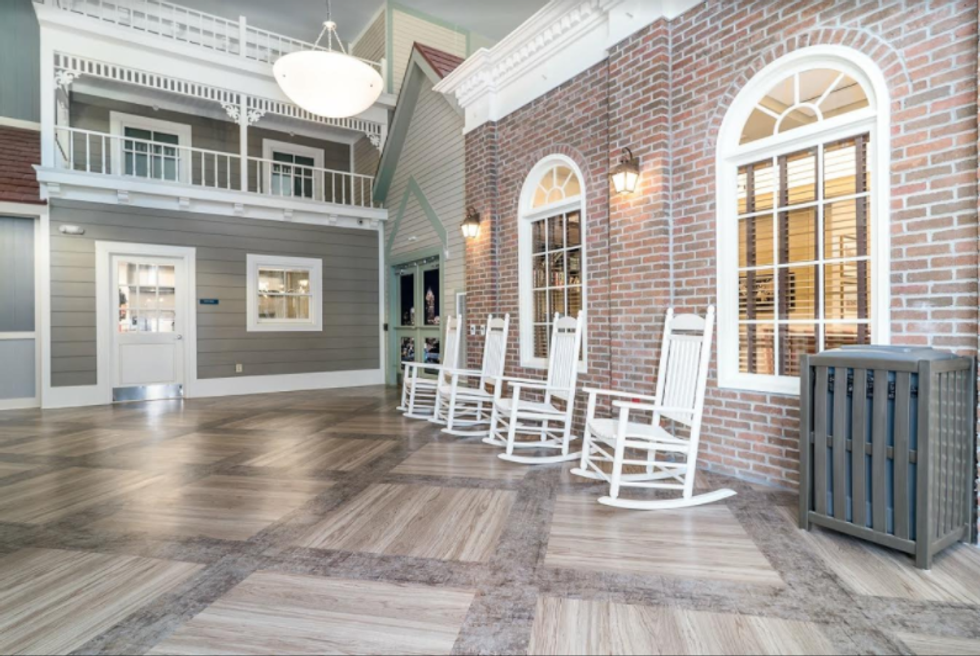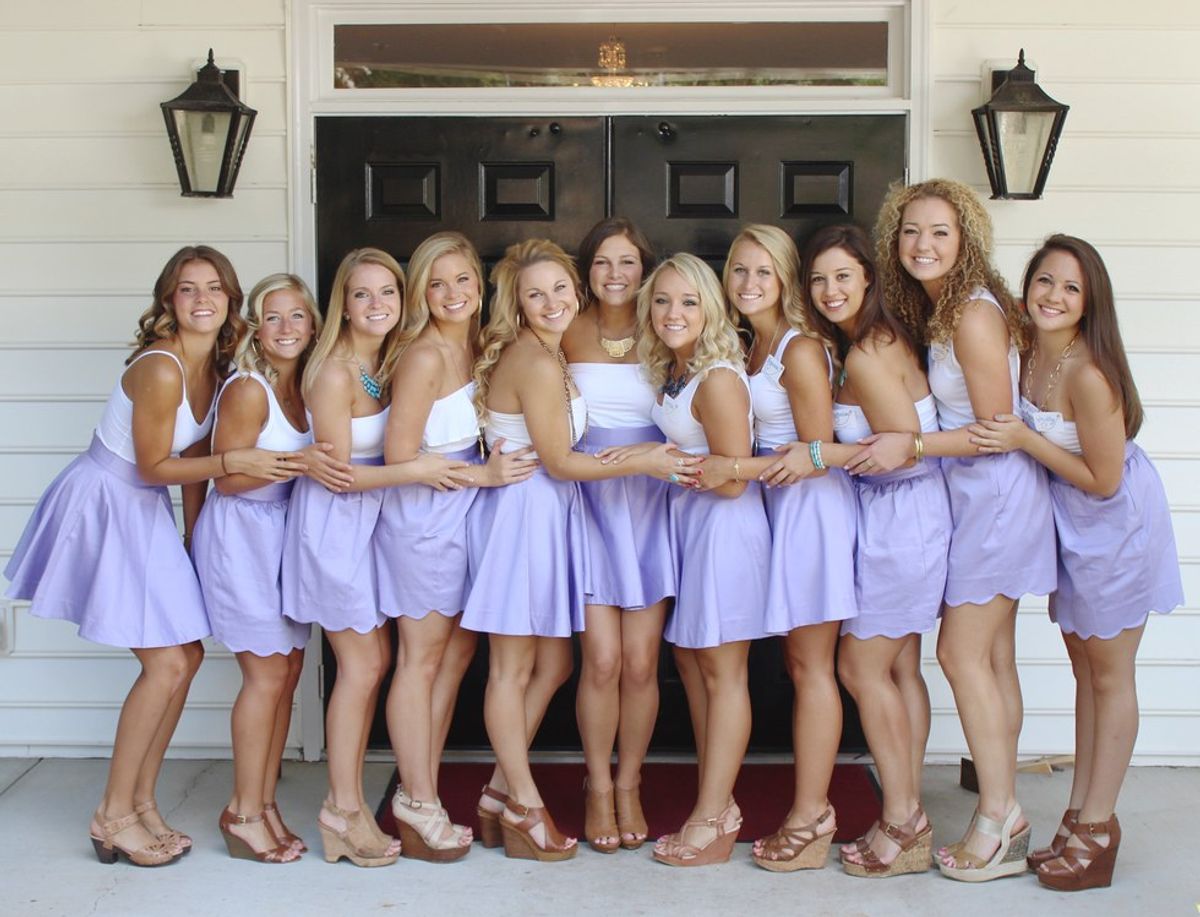Written by: Simrit, Srihitha, and Srinidhi
As a part of our Power In Purple campaign, we volunteer at least once a month at The Memory Center, a wonderful senior home for patients with dementia. As volunteers, we engage patients and their families with activities and other fun things.
On one of our days there, we interviewed four nurses to understand what their job at The Memory Center entails. We interviewed Z (CMA), Tendai (CMA), Fanta (RA) and Tierra (RA).
CMAs are Certified Medical Assistants who assist patients with their needs and also do administrative work. RAs are Resident Assistants, and their job is to serve the need of patients in retirement facilities and/or long-term care facilities.
1. How did you know that you wanted to serve in this part of the medical field ?
"Ever since I have become a CMA, I have been to every center, not just the memory center. I have worked with agencies and like nursing homes. I've had 14 years of being a CMA [since] I have worked with [dementia patients]. But this is the first place that I've worked where all the patients have some sort of dementia, and I love to do what I do." — Tendai (CMA).
2. What do you essentially do as a routine everyday?
"I come in the morning, do some accounts, medication, make sure my nurse cart is straight, do some care. Then breakfast, medication, activities like puzzles or coloring or crafts or something. Take their blood sugar, insulin levels, lunch, again activities, and medication again. I'm doing medication all day, and I just gave my last 2 [p.m.], too." — Fanta (RA)
The Memory Center has been set up in a way where residents feel like they never left their own town. They have a "town center" where most of the games and activities take place. Every day at 2 p.m., they have an ice cream social where all the nurses, residents, staff members and any visiting family get together and enjoy ice cream while doing various activities.
The center also includes a version of Atlanta's "Fox Theater," a bar that serves apple cider and other sodas. They also have a library and a mini chapel. The center is divided into "neighborhoods" and there are about 48 residents who are in different neighborhoods that are named after flowers.
3. What is one word you would use to describe the residents?
"Unique. They all have so many different personalities it is hard to pinpoint one specific word. You have to really be passionate towards them to be able to take care of them."
All the nurses agreed on this.
4. What is the most challenging part of your job?
"Fighting. Definitely fighting. Whenever I tell them something, sometimes you get 'no, no, no.' And you have to try you have to be patient by giving them their space and coming back at another time. You have to learn how to redirect them and make sure they are on the right track. Sometimes they will just cuss you off, and we have to learn how to shake it off and understand their situation." — Tierra (RA)
5. What is the most favorite part of your job?
"Being able to help these people. They are like family now after so many years." — Tendai (CMA)
6. In your opinion, what is the most important quality any caregiver should have?
"You have to be patient when dealing with the residents. They sometimes spit on my face, and I can not spit back at them and lose my temper obviously. I'll lose my job if I did that! So you just have to ignore it and shake it off and come back at a different time.
"They are always trying to to so many things at the same time and in general you have to already be able to be patient in healthcare, but for this job, it's like you have to be even more than that and be extra extra patient. You have realize that everyone here was educated once, and they were people who have been someone too.
"We have a geologist, a brain surgeon for kids, nurses, emergency trauma surgeon, and many more, so it's important to have that realization and see them for who they are without this condition." — Fanta (RA)
7. Can you share one of your most memorable memories at the memory center?
"The cursing or fighting every day is a new memory. We get that every day so many times so it is hard to choose one." — Tierra (RA)
8. Do you ever have to handle stress as a part of The Memory Center, and if you do, how do you handle it?
"They can be rude and do not know it. We get kicked, spit on, cursed at. So you just have to be mature and handle it as a sensible adult. One minute you guys are friends, and the other minute he is putting his middle finger up at you because [he doesn't] want to do something. They love you, and then they hate you. We handle the stress by walking away and giving them time and then coming back when they have calmed down.
"They once made a test for us to see how the patients at the memory care center feel — not a test but basically put us in their shoes type of thing. It feels horrible to be in their situation. This was so that you can better understand the patients at the memory center, and it was horrible so we were able to just understand it and calm ourselves down." — Z (CMA)
9. What advice might you have to teens and the upcoming generations about handling the small, everyday stresses?
"Keep calm and try to get someone to talk to about it because letting it out can just really help you so much. It is so easy to just let it out to someone, and it relieves you from that burden.
"I believe in two things about stress though: pray about it… and let it out by talking to someone about it — taking someone's opinion. Crying also relieves stress because you are letting it out. Well, it depends on the the person, but everyone does different things to destress themselves. Just know that it is important to let it all out." — Fanta (RA)
As three high school students that have been interested in the medical pathway for a very long time, we were able to learn more about the different aspects of being a nurse in a center like this. We were also able to have a very detailed look at how these nurses take on their days at the Memory Center. Now, we can be better volunteers at the Memory Care, now knowing what kinds of things we can help out with. We sincerely thank the nurses who shared their experiences to help us better understand this profession.






















